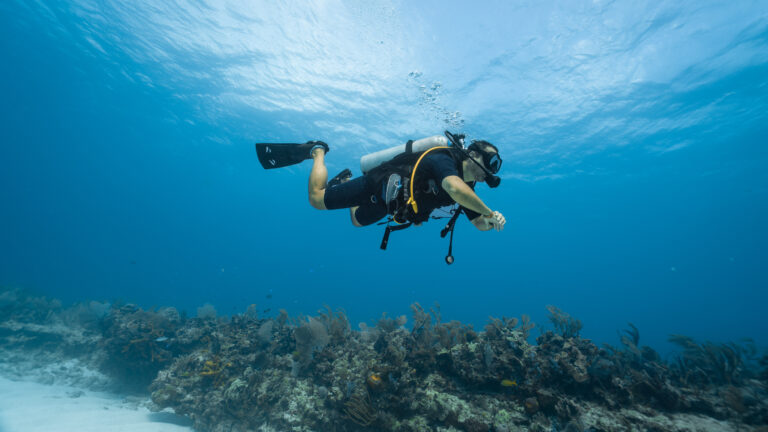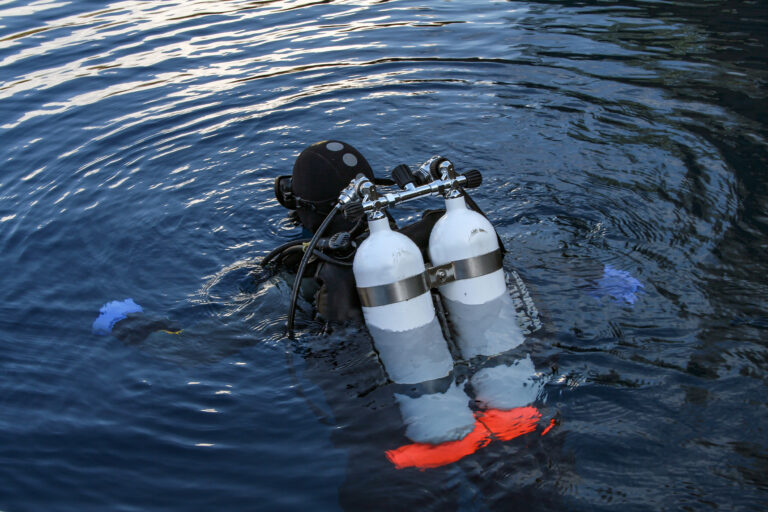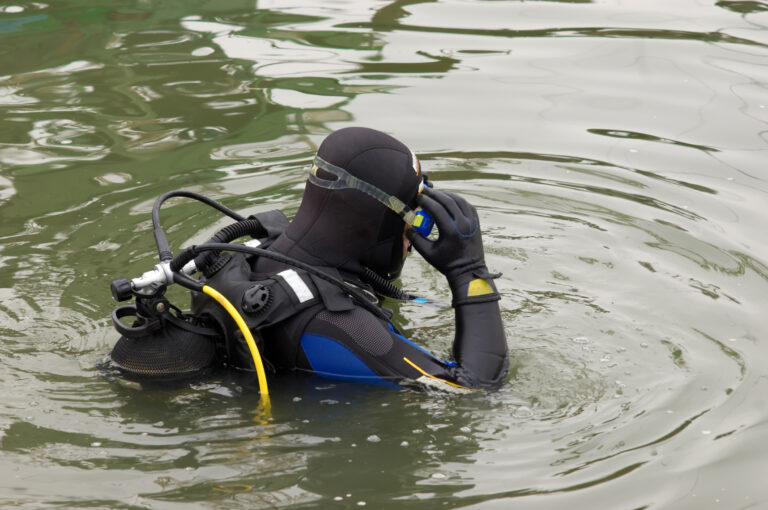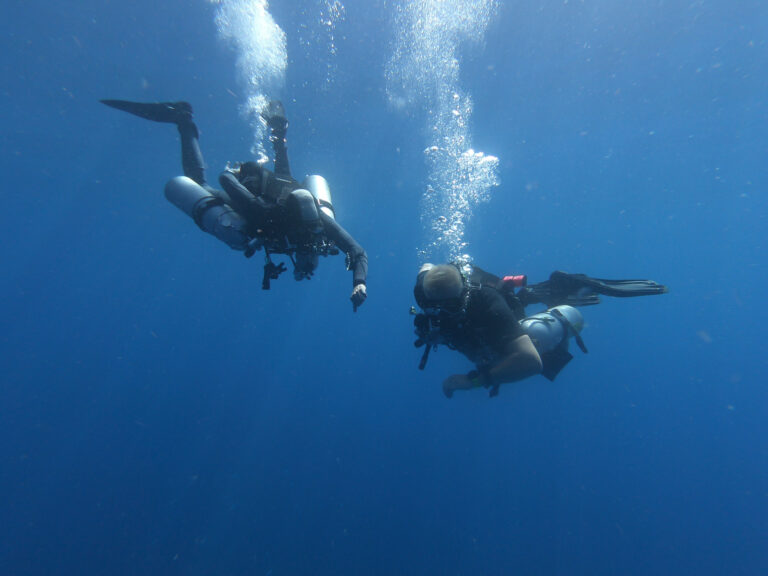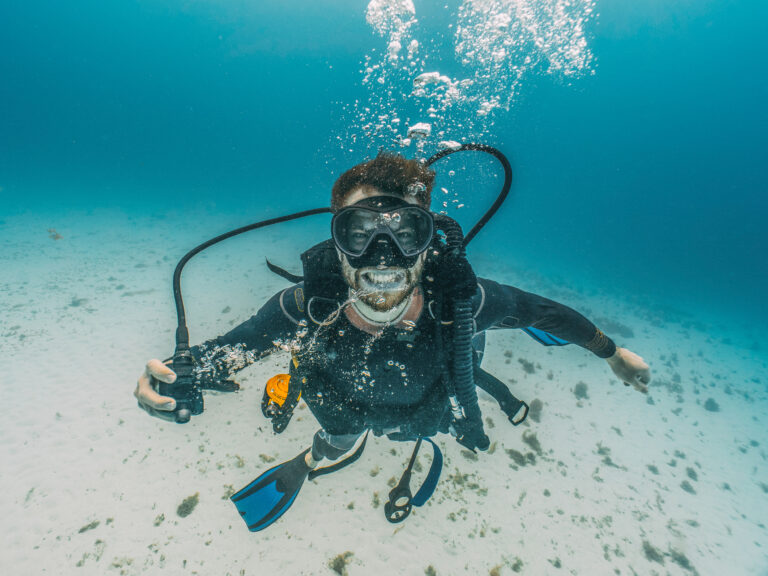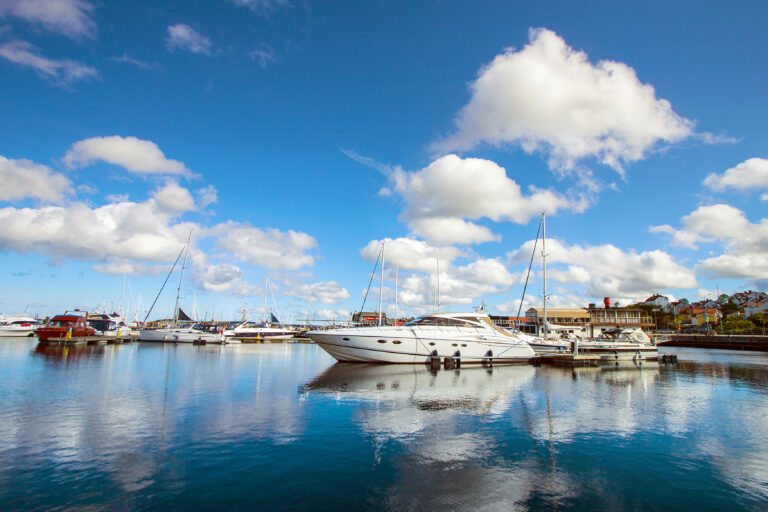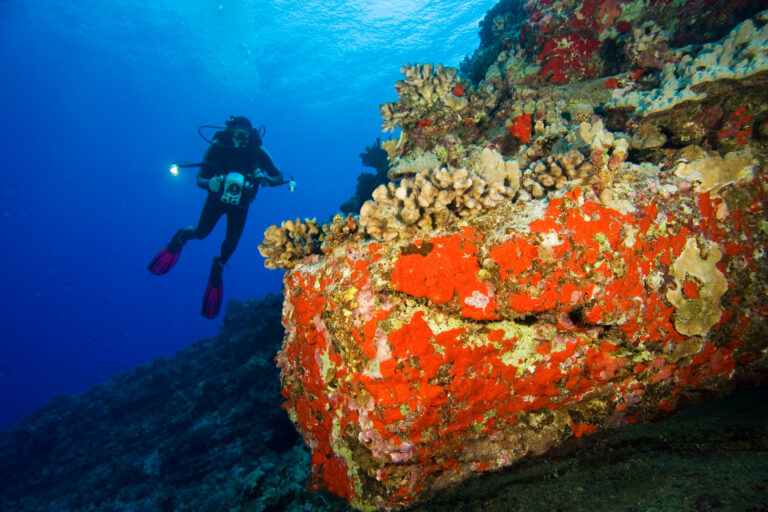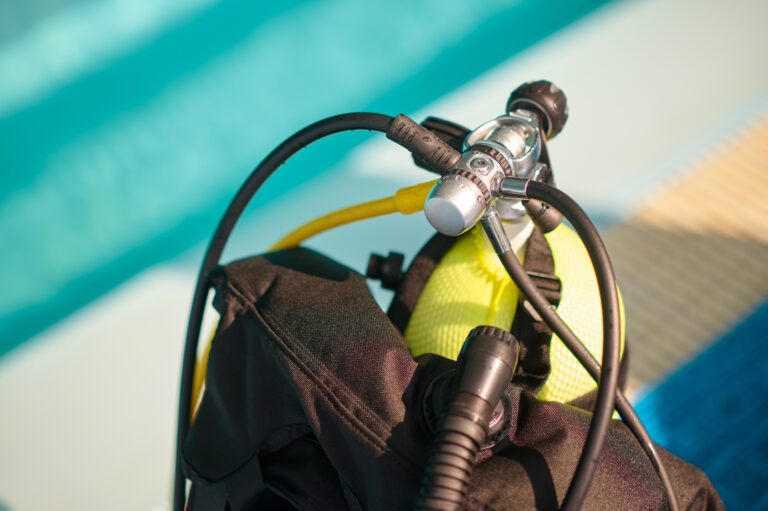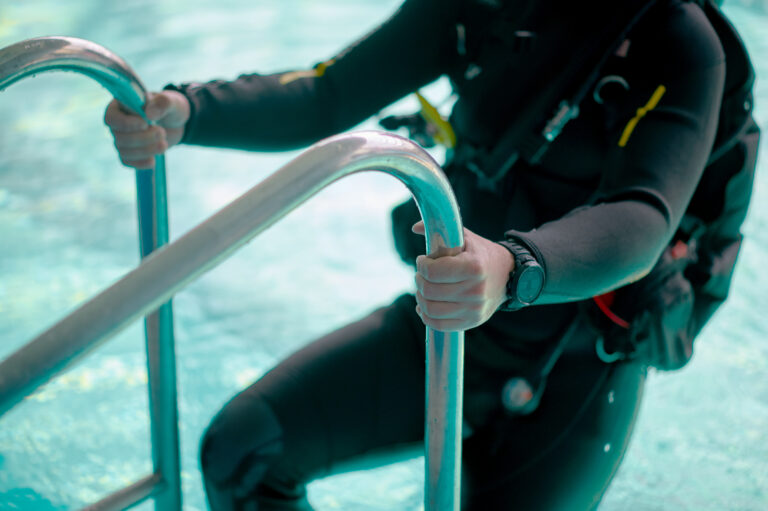SCUBA DIVERS’ TRAVEL GUIDE TO England
England is a country of contrasts, where ancient history meets modern culture, and where rolling hills give way to rugged coastlines. For scuba divers, England offers a variety of experiences, from exploring shipwrecks and marine life in the cold waters of the North Sea, to diving in the warmer and calmer seas of the English Channel and the Celtic Sea. Whether you are looking for a challenge or a relaxing dive, England has something for you. You can dive with seals, sharks, rays, and dolphins, or marvel at the colorful corals and anemones that adorn the underwater landscapes. You can also discover the rich maritime heritage of England, as you dive among the remains of sunken ships, planes, and submarines from different eras. England is a destination that will surprise and delight you with its diversity and beauty.
LOCATION AND GEOGRAPHY
England, while not traditionally celebrated for its scuba diving, offers a unique underwater experience shaped by its island geography, with coastlines touching the North Sea, the English Channel, and the Atlantic Ocean. The country’s diving locations are diverse, ranging from the rugged, kelp-rich waters off the Cornish coast to the eerie allure of historic shipwrecks in the English Channel. The Isles of Scilly, an archipelago off the southwestern tip of the Cornish peninsula, are particularly noteworthy for their clear waters and marine life. Inland, England boasts numerous lakes and quarries, such as Stoney Cove in Leicestershire, which have been adapted into inland dive sites. The temperate marine climate means that while the waters may not be tropical, they host a surprising variety of marine flora and fauna. Divers in England can explore underwater landscapes that include dramatic rock formations, wartime relics, and a tapestry of marine habitats, all while navigating the challenges and rewards of diving in cooler waters.
VISA AND ENTRY REQUIREMENTS
Before embarking on your underwater adventure to England, it is essential to ensure that your travel documents are in order. Visitors from many countries, including the United States, Canada, Australia, and many other nations, do not require a visa for stays of up to six months for tourism purposes, which includes scuba diving. However, entry requirements can change, so it’s important to check the latest information from the UK government or the British embassy in your country before you travel. Upon arrival, you must present a valid passport, and you may be asked to show proof of return or onward travel, as well as sufficient funds for your stay. EU, EEA, and Swiss citizens can enter using a valid passport or national identity card. If you’re planning to work or stay longer than six months, you will need to apply for the appropriate visa. Always ensure your passport has at least six months of validity from your planned date of return to avoid any issues at the border.
GETTING TO England
Getting to England for a scuba diving adventure is a straightforward endeavor, thanks to the country’s well-connected transportation infrastructure. The United Kingdom is served by numerous international airports, with London Heathrow being the largest and most popular entry point for international travelers. From North America, direct flights to England are abundant, while from Europe, both flights and high-speed trains, such as the Eurostar through the Channel Tunnel, offer convenient access. Once in England, domestic flights, trains, and coaches can transport you to coastal regions known for scuba diving, such as the rugged shores of Cornwall, the historic wrecks off the coast of Scapa Flow in the Orkney Islands, or the charming coves of Devon. Car rentals are also widely available for those who prefer the flexibility of exploring the English coastline at their own pace. Always remember to check the latest travel advisories and visa requirements for your country of origin before planning your trip.
BEST TIME TO DIVE
The best time to scuba dive in England is generally from May to September when the water temperatures are more comfortable, ranging from 10°C to 17°C, and the visibility is at its peak, often exceeding 10 meters in some locations. During these months, the marine life is abundant, and divers can enjoy encounters with a variety of species, from colorful anemones and nudibranchs to larger animals like seals and basking sharks. However, it’s worth noting that English weather can be unpredictable, and sea conditions can change rapidly, so always check local dive reports and weather forecasts before planning your dives. While winter diving is possible for those willing to brave the colder waters, it requires additional thermal protection and experience with cold water diving. Regardless of the season, England offers a unique diving experience with its rich underwater heritage, including historic shipwrecks and vibrant marine ecosystems waiting to be explored.
ACCOMMODATION OPTIONS
Accommodation options for scuba divers exploring England’s underwater treasures are as varied as the dive sites themselves. From the rugged coasts of Cornwall to the historic shipwrecks off the Isles of Scilly, divers can find a range of places to stay that cater to their needs. Coastal bed and breakfasts and seaside hotels often provide gear rinsing areas and secure storage for diving equipment. For those seeking a more immersive experience, dive resorts and liveaboards in areas like Lundy Island offer packages that include multiple dives and on-site facilities. Inland, near freshwater dive sites such as Stoney Cove in Leicestershire, divers can opt for countryside inns or self-catering cottages that offer a cozy retreat after a day in the water. Whether you’re looking for luxury or simplicity, England’s dive accommodations are designed to enhance your underwater adventure with comfort and convenience.
DIVE OPERATORS AND DIVE SHOPS
In the cool, temperate waters surrounding England, a plethora of dive operators and shops cater to both novice and experienced divers, offering a unique underwater experience steeped in history and natural beauty. From the rugged coasts of Cornwall to the shipwreck-laden shores of Scapa Flow in the Orkney Islands, England’s dive shops are well-equipped to guide you through an array of dive sites, including ancient submerged landscapes and World War relics. These operators prioritize safety and environmental stewardship, often providing PADI or BSAC certification courses, gear rental, and expert-led dive excursions. Many shops also arrange dive trips to the country’s numerous marine reserves and historic wrecks, ensuring a responsible and enriching dive experience. Whether you’re looking to explore kelp forests, encounter marine life, or delve into the silent world of sunken vessels, England’s dive operators are your gateway to the underwater marvels that lie beneath the waves of this storied isle.
TRANSPORTATION WITHIN England
In England, transportation options to reach your scuba diving destinations are varied and efficient, catering to the needs of both domestic and international divers. The country’s extensive network of trains and coaches connects major cities to coastal towns, with services like National Rail and National Express offering convenient routes to popular diving spots such as the rugged coasts of Cornwall or the charming shores of the Scilly Isles. For a more personalized journey, car rentals are widely available, providing the freedom to explore the picturesque countryside and coastal roads at your own pace. Smaller diving sites might require a bit of local knowledge, so consider liaising with local dive shops for shuttle services or advice on the best public transport options. Additionally, for those looking to dive in more remote locations, such as the Farne Islands or Lundy Island, local boat charters are a necessity and can be arranged through dive centers or tour operators, ensuring you reach your underwater adventure with ease.
CURRENCY AND PAYMENT METHODS
In England, the official currency is the British Pound Sterling (£), which is the predominant medium for transactions across the country, including scuba diving services. Credit and debit cards, particularly Visa and MasterCard, are widely accepted at dive shops, resorts, and most establishments. However, it’s advisable for divers to carry some cash for smaller dive operations, tips, or remote locations where electronic payments might not be possible. ATMs are readily available in urban areas and near tourist hotspots, but ensure you inform your bank of your travel plans to avoid any issues with card usage abroad. While traveler’s checks are less common, they can still be exchanged at major banks and currency exchange offices. It’s also worth noting that some dive shops may offer discounts for cash payments, so it’s beneficial to inquire about payment preferences when booking your dives. Always check the latest exchange rates and be aware of any foreign transaction fees your bank may impose to manage your budget effectively while enjoying the underwater marvels of England’s dive sites.
LANGUAGE AND COMMUNICATION
When diving in England, communication both above and below the surface is primarily conducted in English, which is the official language of the country. It’s essential for divers to familiarize themselves with the specific diving terminology and hand signals used universally, as well as any local variations that might exist. Dive briefings, safety instructions, and equipment discussions will be in English, so a basic understanding is beneficial for non-native speakers. It’s also advisable to learn the metric system for depth and distance measurements, as the United Kingdom uses this system for diving operations. In the event of language barriers, dive centers in popular areas may have staff who can speak other languages, and it’s always possible to find dive operators that offer materials in multiple languages. Remember, clear and effective communication is key to ensuring safety and enjoyment while exploring England’s underwater landscapes.
LOCAL CULTURE AND ATTRACTIONS
England may not be the first destination that springs to mind when one thinks of scuba diving, but its rich maritime history and diverse coastal culture offer a unique underwater experience. Beyond the allure of its chilly waters, England’s coastal towns brim with local charm and historical attractions. In places like Cornwall, divers can explore not only the abundant marine life and shipwrecks but also indulge in the local cuisine, with Cornish pasties and fresh seafood being regional specialties. The Jurassic Coast, a UNESCO World Heritage site in Dorset, provides not only spectacular diving opportunities with its ancient underwater landscapes but also the chance to walk in the footsteps of dinosaurs on land. After a day of diving, visitors can immerse themselves in the local culture by visiting historic castles, enjoying a pint of ale in a traditional English pub, or attending a maritime festival. England’s blend of underwater adventures and onshore cultural experiences makes it a unique destination for divers looking to enrich their travel with historical and local flavor.
CULTURAL ETIQUETTE AND TIPS
When scuba diving in England, it’s important to embrace the local customs and etiquette to ensure a respectful and enjoyable experience. English divers are known for their politeness and adherence to rules, so punctuality and courtesy are highly valued. When joining a dive group or boarding a dive boat, a friendly introduction and a firm handshake are customary. It’s also common to engage in light-hearted ‘banter’ with fellow divers, but always with good-natured intent. Be mindful of the environment; the English take pride in their conservation efforts, so ensure you do not disturb marine life or remove artifacts from dive sites. After dives, it’s customary to debrief over a cup of tea or at the local pub, where sharing stories of your underwater adventures is welcomed. Tipping is not mandatory, but if you feel that the service provided by your dive guide or crew was exceptional, a modest gratuity is appreciated. Lastly, given the unpredictable English weather, be prepared for changes in dive schedules and have a flexible attitude, as safety is paramount in the face of changing sea conditions.
LOCAL LAWS AND REGULATIONS RELEVANT TO TOURISTS
When planning a scuba diving trip to England, it is essential for tourists to familiarize themselves with local laws and regulations to ensure a safe and lawful experience. England enforces strict marine conservation laws, and divers must respect no-take zones and marine protected areas, where the removal of wildlife or artifacts is prohibited. Diving within the vicinity of wrecks that are designated as protected sites requires a license, and tampering with or removing items from these wrecks is illegal. Additionally, divers should be aware of the Recreational Craft Directive, which governs the use of dive boats, and ensure that their chosen dive operators comply with these safety standards. It is also mandatory to use a diver’s flag to indicate the presence of a diver underwater to passing boats. Lastly, while England does not require a diving license, divers should carry proof of their certification and logbook, as dive centers will request these before allowing participation in diving activities. Always check for the most current regulations before your dive, as laws can change and local bylaws may apply in certain areas.
SAFETY TIPS AND EMERGENCY CONTACTS
When diving in England’s diverse underwater landscapes, safety is paramount. Always ensure that you are certified by a recognized agency and that your skills are up-to-date, particularly for the challenging conditions you may encounter in British waters. It’s crucial to check your equipment thoroughly before each dive and to be familiar with local dive sites’ potential hazards, such as strong currents, cold water temperatures, and limited visibility. Dive within your limits, and always plan your dive with a buddy. Keep a dive flag visible when underwater to alert boats to your presence. In case of an emergency, it is vital to know the local protocols. The emergency services can be contacted by dialing 999 or 112. For diving-specific incidents, such as decompression sickness, England has several recompression chambers; ensure you have the contact details for the nearest one to your dive site. Additionally, carry a means of signaling for help, such as a whistle or a surface marker buoy. It’s also advisable to have dive insurance that covers hyperbaric treatment. Lastly, always inform someone onshore of your dive plan and expected return time. By following these precautions, you can help ensure a safe and enjoyable diving experience in England’s waters.
HEALTH AND TRAVEL INSURANCE
When planning a scuba diving trip to England, it’s crucial to consider health and travel insurance that covers diving-specific incidents. The National Health Service (NHS) provides healthcare for residents, but as a visitor, you should ensure your policy includes hyperbaric treatment and medical evacuation, as these can be costly and are not always covered by standard travel insurance. England has several recompression chambers across the country, but access might require transportation from remote dive sites. Additionally, diving in England can involve exploring wrecks and cold water, which come with their own set of risks. Therefore, it’s advisable to opt for a comprehensive diving insurance plan from a reputable provider like DAN (Divers Alert Network) or DiveAssure, which cater to the unique needs of divers. Always carry proof of your insurance and understand the procedures for making a claim, so you can dive into England’s underwater treasures with peace of mind.


